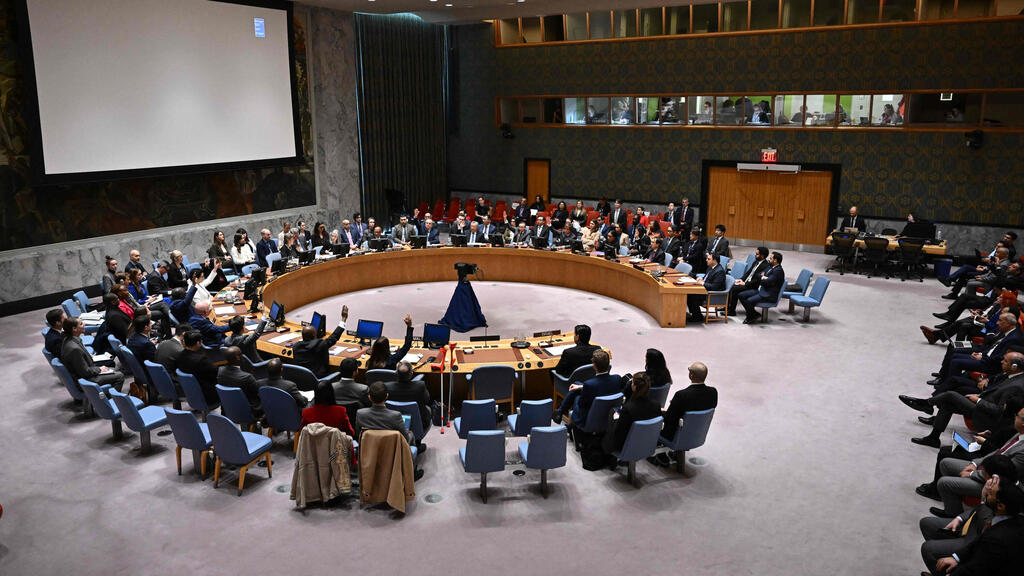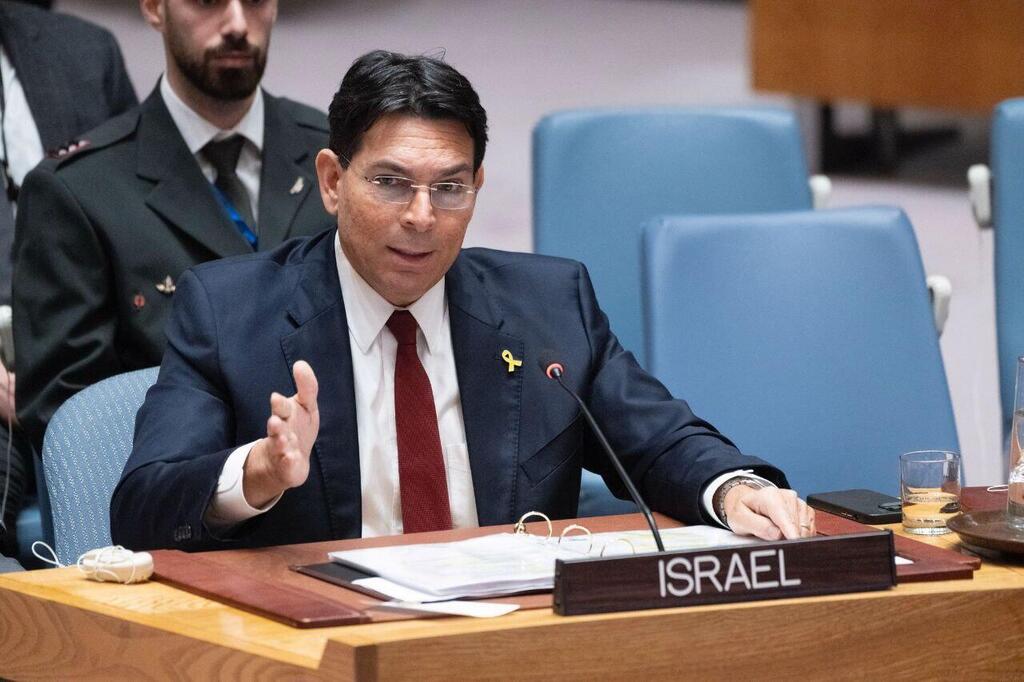The makeup of the UN Security Council is set to become less hostile toward Israel following elections held this week for five new non-permanent members, who will take their seats in January 2026.
Latvia, which just last month abstained in the EU vote on suspending trade agreements with Israel, will replace Slovenia, considered one of the more hostile members toward Israel. Colombia will take the seat currently held by Guyana, which has pushed a series of anti-Israel resolutions since the war in Gaza began. While Colombian President Gustavo Petro has taken a sharply anti-Israel stance and led severe measures against Jerusalem, his term is set to end in May 2026, and Israel hopes for a shift in Bogotá’s position thereafter.
Liberia and the Democratic Republic of the Congo — both of which have expressed openness to moving their embassies to Jerusalem — will join the council in place of Algeria, considered perhaps the most hostile country toward Israel currently on the council, and Sierra Leone.
Another notable change is the replacement of South Korea with Bahrain. While South Korea has been relatively friendly to Israel, it still supported most ceasefire resolutions during the war. Bahrain, for its part, is expected to voice the Arab League’s position but is a signatory to the Abraham Accords and is not expected to adopt as adversarial a tone as Algeria.
Greece, Panama and Denmark will continue to serve on the council. Greece and Panama are both seen as friendly to Israel, while Denmark is viewed as relatively balanced. Israeli officials say that overall, the new composition marks a clear improvement for Jerusalem, at least in terms of tone.
Get the Ynetnews app on your smartphone: Google Play: https://bit.ly/4eJ37pE | Apple App Store: https://bit.ly/3ZL7iNv
Israeli Ambassador to the UN Danny Danon said, “I welcome the countries elected to serve on the Security Council. We look forward to working with the new members and are confident their election will bring moral clarity to the council’s work.”
Meanwhile, the Security Council — still in its current composition — voted on Wednesday on a draft resolution submitted by 10 non-permanent members calling for an immediate ceasefire in Gaza and the entry of humanitarian aid to all parts of the enclave. The proposal was initiated by Slovenia, Guyana and Algeria, and ultimately failed thanks to a U.S. veto.
This was the first resolution brought before the Security Council since President Donald Trump returned to the White House.
Acting U.S. Ambassador to the United Nations Dorothy Shea defended Washington’s decision to veto the resolution calling for an immediate ceasefire in Gaza, asserting that such a move without a clear condemnation of Hamas would amount to “rewarding terror.”
“After all, it was Hamas that launched the brutal attack,” Shea said. “It continues to hold Israeli hostages and uses Palestinian civilians as human shields.” She criticized Security Council members for repeatedly refusing to denounce the terrorist organization.
Acting US Ambassador to the United Nations Dorothy Shea defends Washington’s decision to veto the resolution
(Video: UN)
“The United States supports Israel’s right to defend itself and defeat Hamas so that it can never again pose a threat,” she said. “Our opposition to this resolution should not come as a surprise. The U.S. has made clear it will not support any effort that fails to condemn Hamas. We cannot allow the Council to reward terrorism.”
Shea argued that an immediate ceasefire would only serve to empower Hamas and enable it to stage another October 7-style attack. “No one wants to see Palestinians in Gaza hungry or thirsty,” she said. “But Hamas must accept the proposal currently on the table. The United States is working with Egypt and Qatar to bring this terrible conflict to an end.”
In closing, Shea declared: “Let us instead demand that Hamas surrender and leave Gaza for good. A real agreement—one that frees the hostages, brings about a ceasefire, and allows Palestinians to break free from Hamas—is what we must aim for.”






